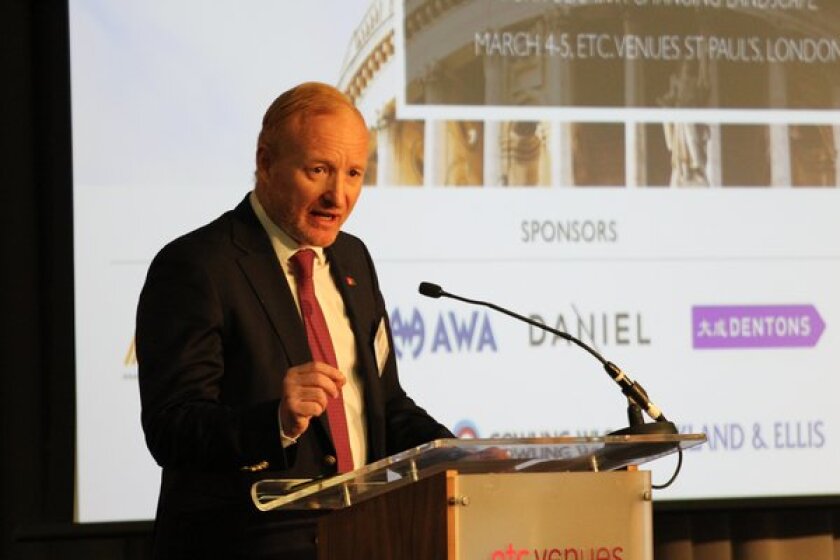EPO president Antonio Campinos has conceded that the proposed unitary patent may appear less attractive without the UK, but has insisted that with the political will to make it happen the project can still be a success.
Describing the UK government’s decision to no longer seek membership of the unitary patent and the Unified Patent Court (UPC) as a “great pity”, Campinos said: “Some will say the decision is a blow to the whole system, but is it a decisive blow? No.”
He added: “Yes, no longer having the UK as a member may make it less attractive but it still has huge benefits to offer, especially when you consider the economic benefits and the potential reach. Whether it has 25, 22 or 20 member states, the UPC makes sense.”
Campinos was speaking at Managing IP’s International Patent Forum in London today.
The UK government’s admission last week that it no longer wanted to be a part of the UPC could be a major blow to the proposed system. A spokesperson for the prime minister’s office said that joining a system that has oversight from the Court of Justice of the EU was “inconsistent” with its aim of being a “self-governing nation.”
A pending complaint in Germany’s Federal Constitutional Court could yet throw more doubt over the project. A judgment is expected in that case in the next month or so.
Legally there is also doubt over the UPC’s future as the UK, France and Germany are all required to ratify the project before it can come into force.
Campinos added that although people could now find ways not to pursue the UPC, with the right political will and support there are also “1,000 reasons” why it should continue.
Campinos, who took over as EPO president from Benoît Battistelli in 2018, also spoke of the importance of harnessing artificial intelligence (AI) in the EPO’s everyday work.
Despite the EPO decision to reject a patent application listing AI as an inventor, Campinos predicted that this is a subject that will come under much discussion in the coming years.
“We can expect to see more of these applications,” he said, adding: “These are challenges we are going to have to face.”
AI will also be used to assist EPO staff in their everyday work, Campinos suggested, adding that AI assistance will be used by examiners as part of the office’s commitment to quality.











